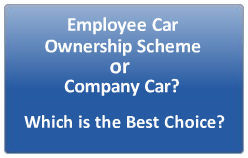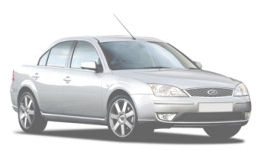 |
|---|
|
| |
| |
 |
|
 |

Vehicle Programme
|

Innovative... Tailored... Tax Efficient...
Vehicle Funding Solutions
Designed to suit your requirements. Maximising the benefits
|
|
| |
|
Having the choice on what car you drive, whilst monitoring the running costs is important to any business user.
Optimising your choice, whilst considering company taxation and depreciation on the car alongside the effect of Inland Revenue rules, needs careful consideration.
|
 |
|---|
The Pros and Cons of an Employee Car Ownership Scheme
Some inspectors for HM Revenue and Customs (HMRC) have perceived ECO schemes as 'pseudo company car schemes' leaving company car users not properly investigating the possibilities. Yet if you persevere and get it right these schemes can deliver quite outstanding savings, and also add value to your car benefit package. The trick is to understand their limitations and apply the schemes selectively.
ECO schemes are undoubtedly complex, being specifically designed to counter Company Car Tax (CCT) according to the prevailing tax regime. There are also many variations around, including some that will challenge HMRC patience and may indeed be non-compliant. If you look at a scheme with end-of-year mileage reconciliation steer well clear of it. Such schemes were standard some years ago, but they are inefficient in terms of actual reconciliation, in that they “estimated” how much mileage and cash to pay based on expected mileage profiles, and are potentially non-compliant in relation to NIC payment periods. If the scheme is based on monthly mileage reconciliation, and conforms to HMRC rules, it is probably worth looking at. So how does an ECO scheme actually work?
If an employer provides company cars, the employees will be liable for CCT at their marginal rate, based on the list price multiplied by a percentage derived from the emissions of the individual cars. The employer pays Class 1A NICs on this benefit, as well as having to fund and maintain the car itself. Depending on several factors, not least of which is the business mileage driven, it may be cheaper to pay a combination of cash and mileage allowances to the employee instead, such that the employee can buy and run the same car at no additional cost. This “salary neutrality” using as much of the tax and NI-free AMAPs (Approved Mileage Allowance Payments) as possible, is the basis of the ECO scheme. It essentially replaces the company-owned car with one owned by the employee. Finance, maintenance, insurance and the driver management aspects should be similar in feel to the company car, and the employee should also derive some benefit from the arrangement or it is unlikely to work. This benefit could be a share of the savings or something less tangible such as better choice. The actual mechanics of schemes vary, but all are highly dependant on business mileage.
For example:
Dave is entitled to a Ford Mondeo 2.0 TDCi with a list price of £17,205 and emissions of 156. He is a 40% taxpayer and receives only business fuel, so his only tax liability is the CCT on the car itself of £3,613 making him liable for £1,445 per year, the equivalent of £120 per month in net cash terms.
His employer funds the company cars with a full contract hire package over 36 months, and his annual mileage is 24,000 with business mileage of 16,000 per year. The actual cost to the employer for the company car (including contract hire costs, disallowed VAT on the rentals, NIC on the car benefit, Corporation Tax disallowance, Insurance, fuel etc.) is estimated to be £7,044 per year, against that of paying AMAPs and a cash top-up to Dave which, after deducting the £1,445 that he would otherwise have paid in tax, amounts to £5,776. This annual saving of £1,209 is substantial, and it is easy to see how employers can be swayed toward ECO schemes, especially if the average business mileage of the fleet is high. However, if business mileage were only 5,000 miles per year, there would not be a saving; there would be an annual cost of £1,260 instead in the ECO scheme. This is because the salary top-up would have to be much larger to keep him “salary neutral”.
Another potential risk to going entirely ECO is the level of AMAPs themselves. Although it is expected that HMRC will maintain similar rates as currently for cars between 140 and 160g/km emissions, there is a strong possibility that cars with higher emissions could face reduced rates. Should this happen, care would have to be taken on ECO selection so that costs don’t get out of control.
Ideally, you should consider a mixed fleet strategy that includes some form of ECO arrangement for the high business mileage employees, and a company funded car for the rest. That way you can be confident of reaping the benefits that ECO schemes can provide.
VFS can give you expert advice on the best choice for you company, maximising the benefit to both the company and individual and most importantly, ensure Inland Revenue approval for any proposed scheme. Contact Us today for more details.
|
|
|

Please note: typical fleet size
must be 15 vehicles and above.
|
|
| VFS Vehicle Programme brings you access to: |
|
| |
|
A 'Lease vs Buy' analyser which can show you how to save money, by choosing the right finance method for your business.
A 'Cash or Car' analyser to allow car drivers to check if a cash allowance would save them money.
A wide range of information and help on vehicle finance, including car and fuel benefit calculators and the latest rules on company car taxation.
Specialists in providing unique tailored solutions for your own Employee Car Ownership Scheme or Employee Car Management Scheme, enhancing employee benefits packages in value and choice.
Professional purchasing negotiation directly on your behalf with individual vehicle manufacturers after gaining Inland Revenue approval for the scheme chosen.
A free health check for fleets over 15 vehicles with award winning analysis tools. We will assess the cost saving opportunities against your current fleet financing.
|
|
To find out how you can benefit, let us provide you with an impartial review of your existing fleet facilities and help advise you on the best fleet finance solution for your business. Contact Us today for independent professional advice.
|
|
|



